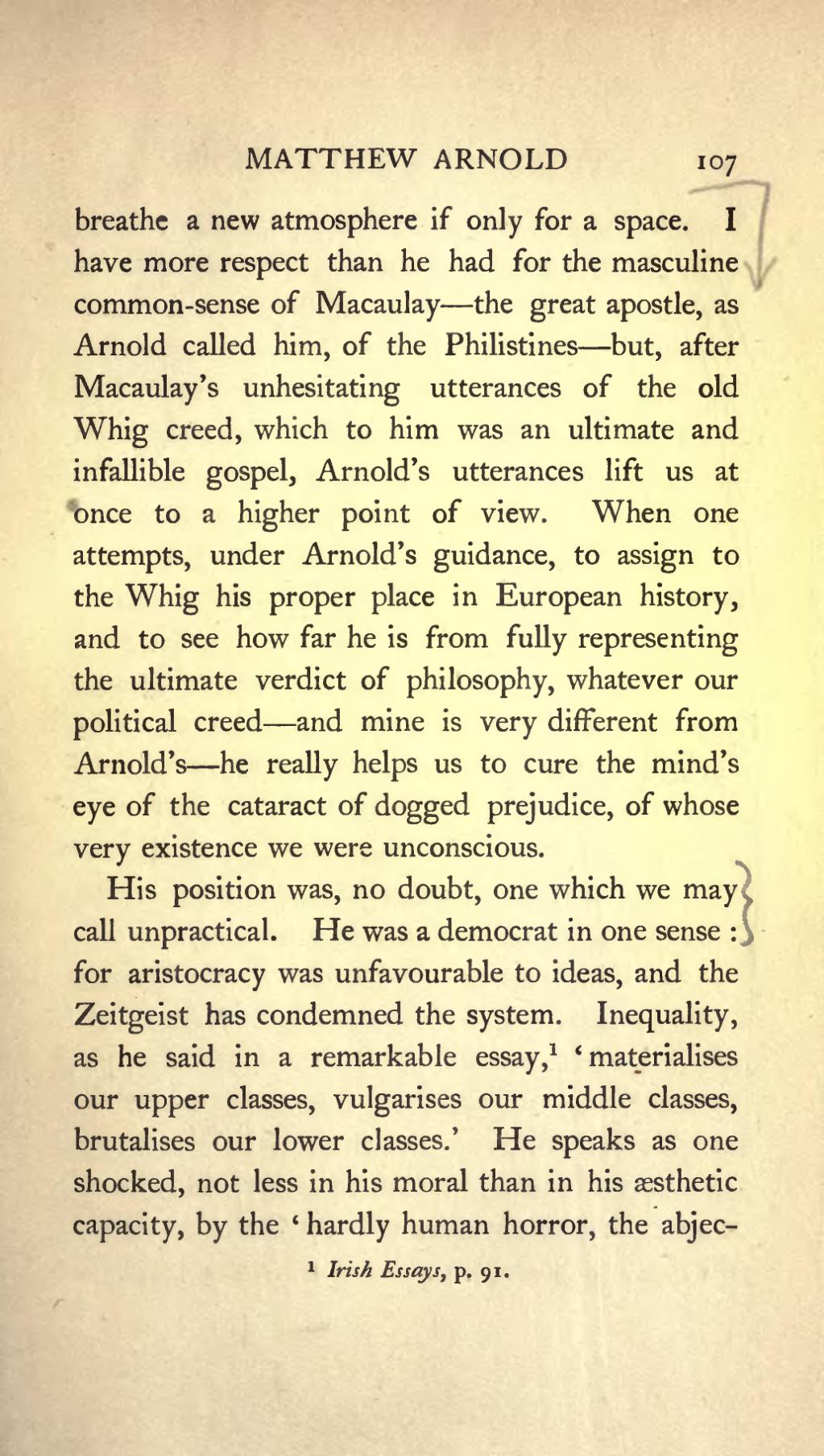breathe a new atmosphere if only for a space. I have more respect than he had for the masculine common-sense of Macaulay—the great apostle, as Arnold called him, of the Philistines—but, after Macaulay's unhesitating utterances of the old Whig creed, which to him was an ultimate and infallible gospel, Arnold's utterances lift us at once to a higher point of view. When one attempts, under Arnold's guidance, to assign to the Whig his proper place in European history, and to see how far he is from fully representing the ultimate verdict of philosophy, whatever our political creed–– and mine is very different from Arnold's—he really helps us to cure the mind's eye of the cataract of dogged prejudice, of whose very existence we were unconscious.
His position was, no doubt, one which we may call unpractical. He was a democrat in one sense: for aristocracy was unfavourable to ideas, and the Zeitgeist has condemned the system. Inequality, as he said in a remarkable essay,[1] 'materialises our upper classes, vulgarises our middle classes, brutalises our lower classes.' He speaks as one shocked, not less in his moral than in his æsthetic capacity, by the 'hardly human horror, the abjec-
- ↑ Irish Essays, p. 91.
